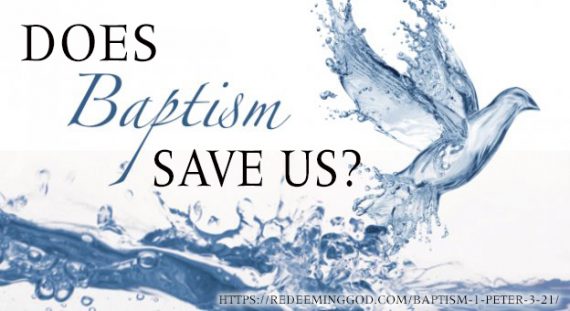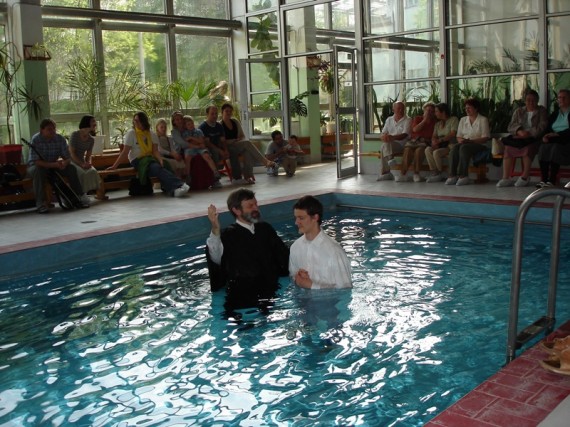In Ephesians 1-3, Paul explained that God has given us great spiritual riches so that we can lead the world into peace. In the first part of Ephesians 4, Paul tells us Christians that the first way we can show the world how to live in peace is by living in peace with one other.
This begins, as we learned in the last study, by looking to our own heart first and developing certain attitudes of the heart.
In this study, we learn that as we seek to live in peace with other Christians, we should focus on seven key truths that all Christians have in common. When we focus on what we have in common rather than on on what divides us, we will begin to create peace in our midst.
Seven Elements of Christian Unity (Ephesians 4:4-6)

As stated above, in Ephesians 4:1-3, Paul taught us to look to our own heart first so that we can develop certain attitudes of the heart that create peace among other Christians.
Now, in Ephesians 4:4-6, we learn that as we seek to live in peace with other Christians, we should focus on seven key truths that all Christians have in common. When we focus on what we have in common rather than on on what divides us, we will begin to create peace in our midst.
The interesting thing about these seven elements is that they form a chiasm. The first item on the list is parallel to the seventh, the second is parallel to the sixth, and so on. This means that the fourth item is the center item and therefore the most important. What is that fourth item? It is the Lord Jesus Christ. The most important thing in the church is that we follow our Head, our Lord and Savior, Jesus Christ. As long as we keep our eyes fixed on Jesus, a lot of these other six elements of Christian unity are easier to focus upon.
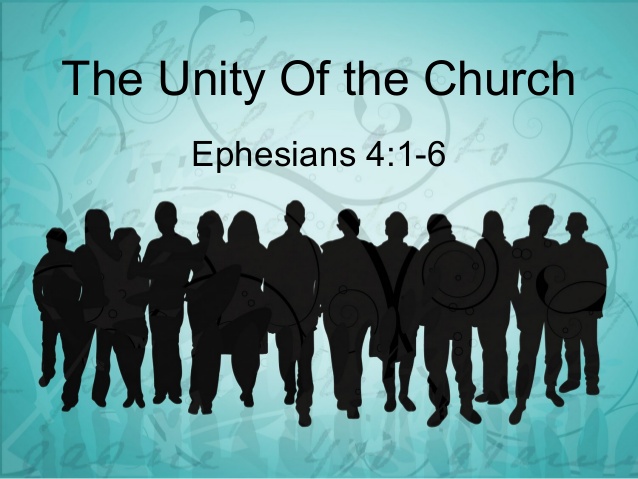
So let us look at each of the seven elements of Christian unity peace. The first is in Ephesians 4:4.
1. There is one body
This is the first element. One body. Paul means that there is one body of believers. One body of Christ. All people throughout time and around the world who are truly Christians are part of the body. The picture of a body is one of Paul’s favorite ways to describe the church. In 1 Corinthians 12, Paul goes into great detail to describe the body of Christ. Paul says there to think of your body. It is an incredibly diverse collection of body parts, but without any one member, the body is not complete. The body is not just a big pile of eyes, or a big pile of hands, or a big pile of feet. Similarly, a body without hands, or eyes, or feet, is not a complete body. All parts make up the body, and all parts are necessary if the body is going to function right.
It is the same in the church. All parts make up Christ’s church, and all parts are necessary if the church is going to function right. We don’t criticize a foot for not being a hand. Nor do we criticize the ear for not being able see. Each part has a unique function, which is necessary for the body to work as a whole. So rather than criticize other people, or other churches, for not being like us, we should look at them as different members of our one body. See what is unique about them, and how they are using their unique talents to do things we cannot. This all gets into the issue of spiritual gifts, which Paul talks about in Ephesians 4:11, so I won’t spoil it by saying more. The first element of unity to focus on is that we are all part of the same body.
Second, also from Ephesians 4:4, we all have one Spirit.
2. One Spirit
Of course, this is the Holy Spirit who lives in each one of us. It is an error to say that some have the Spirit and others don’t. We all have the Spirit within us, and it is the same Spirit the Holy Spirit. The Holy Spirit within each of us strives to get us all to live in unity with each other. When we fail, it is because we are walking according to the flesh, not according to the Spirit (Rom. 8:4-13).
Let’s move on to the third element, the last phrase in Ephesians 4:4: just as you were called in one hope of your calling;
3. One Hope
The third element for unity is one hope. The hope of every Christian is Jesus Christ who is in heaven. He has promised us that simply by believing in him for eternal life, He will bring us to heaven to spend eternity with him. Now most of us think of hope as a sort of “wishful thinking.” We tend to think of it as an uncertainty. But really, hope can have different levels or degrees of certainty. Let me show you what I mean. Uncertain hope is like saying “I hope I win the lottery, but I know I probably won’t. or “I hope the Raiders win the Super Bowl this year. But they might not.” Now I can also say, “I hope the sun comes up tomorrow,” and in that case, I am nearly 100% sure it will.
So you can see that there are different degrees of certainty in hope. And what causes the difference? What makes one thing we hope for more certain than another? Well, in each case, what is the factor that changed? The only factor that changed is the object of your hope. The chances of you winning the lottery are not very likely. Someone once called the lottery a tax for the mathematically challenged. But still, people who buy tickets, hope they will win but very few do. My hope that the Raiders will win the Super Bowl next year is a bit more likely. But still, mostly unlikely. Again, my hope that the sun will rise tomorrow is an almost certain hope because the sun always rises in the morning. The only thing that could stop it from rising is if it blew up or if the earth stopped rotating. Neither of these things are very likely, so my hope that the sun will rise is a well grounded hope.
Now the Christian’s hope is a hope in Jesus Christ. And since God does not and cannot lie, since Jesus always keeps His promises, our hope in Jesus Christ for eternal life is a certainty. There is no uncertainty because the object of our hope is completely trustworthy and reliable. Paul mentions also here something about a calling. This is the same calling we looked at extensively in Ephesians 1:18 and is related to why we were chosen, which we talked about in Ephesians 1:4. Basically, we were called, or chosen, to be holy and blameless, to be heirs of God and co-heirs with Christ, and to be adopted as children. These are all future blessings for the Christian when we get to heaven. So, thirdly, Paul’s point is that we all have hope in one person, Jesus Christ, in order to go to the same place, heaven, where we will all receive the same thing, an inheritance.
We do not place our hope in any other person, but Jesus Christ. We do not place our hope in religious leaders or political leaders. Put no hope in popes, priests, pastors, or people with PH.D.s. Put no hope in kings and presidents. Our hope is in Jesus Christ alone.
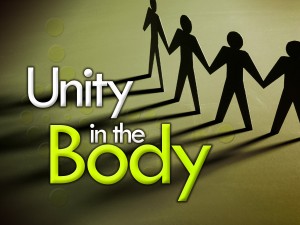 One body, one spirit, one hope, now, fourthly, in Ephesians 4:5, one Lord.
One body, one spirit, one hope, now, fourthly, in Ephesians 4:5, one Lord.
4. One Lord
This refers specifically to Jesus Christ. Paul choice of the term, Lord, shows us that Jesus Christ is God, and therefore, our Master. Now think about it. If we all have the same Lord, the same Master, we will not be getting orders from our Master to be in disagreement with each other. His commands will not contradict or cause disunity among his servants. So the only way disunity occurs is when we disobey our Lord and Master, Jesus Christ.
Fifth, we have one faith.
5. One Faith
All Christians have received eternal life in only one way: through faith. We’ve all entered through the narrow door of faith. This means that faith makes Christianity a level playing field.
There are not some people who are Christians because they were really good people, and others who are Christians because they were born into a Christian family. No. All true Christians are Christians by faith alone. This is a wonderful element to cause unity, because since we are all Christians by faith, then no one can boast in themselves for their salvation. I cannot look down on you because I became a Christian by being such a good person, and you well, you just had to enter by faith. No, we all came in, as beggars, asking for something we did not earn, getting something we did not deserve.
There is one and only one way we all joined the family of God… through faith in Jesus. This helps us grow in unity with each other, because we all became Christians in the same way.
Sixth, we all have one baptism.
6. One Baptism
The baptism Paul is talking about here is the baptism of the Spirit; not water baptism. It is not something we are to pray for or something that happens to us after our conversion. When you become a Christian by believing in Jesus for eternal life, one of the first things that happens to you is the Holy Spirit comes in and lives with in you, and in that moment, He washes you, He cleanses you, He purifies you of all sin, and provides us with the power to have victory over future sin. This is the baptism of the Spirit which all Christians have, and therefore, creates unity within us. This baptism is related to the indwelling Holy Spirit from item two above.
We’ve seen six elements, the seventh is found in Ephesians 4:6.
6. One God and Father of all
Paul says God is above all, and through all, and in you all. Paul has been mentioning the essentials. He’s mentioned that we all one body, through one faith and one baptism. We have one Lord, who is Jesus Christ and one Spirit, who is the Holy Spirit. He now includes the final member of the Trinity, one God and Father of all. In Old Testament times, it was the common belief that the gods were territorial. Each nation, and sometimes, each clan or tribe within that nation, had it’s own god. So when nation battled nation, it was really a contest between gods.
Paul reminds the Jewish and Gentile Christians in the Greek city of Ephesus that this is a bunch of hogwash. There is one God and Father of all. They both have the same God. They do not worship different gods. They do not follow commands from different gods. It is the same God. The fact that He is the Father of all tells us about His love. He created all, and He cares for all just as a Father cares for his children.
The fact that He is above all speaks of His control. No matter what things may look like, God is in control. [transcendence and His omnipotence.] The fact that He is through all speaks of His care and providence. He didn’t just set up the world and leave then leave it alone. He is still involved and active in what He made protecting and providing. [immanence and His omnipresence.] The fact that He is in you all speaks of His presence. He is always near us, and wanting a deeper relationship with us. [indwelling presence and personal relationship with us all.] He is the One God and Father of all.
Those are the seven elements. One body, one Spirit, one hope, one Lord, one faith, one baptism, one God and Father. These are the seven elements that will help create unity among all Christians, regardless of the other beliefs and practices that might tend to divide us. And this helps us learn to get along peacefully with other Christians, even when we might have disagreements with them about some of the other elements of Christianity.
Maybe you disagree with someone else about their theology, or how they do church, or what kind of behaviors they think are okay to participate in. Well, you can disagree with them on those, but still get along in peace and unity with them by focusing on the seven elements of unity that Paul has laid out for us here.
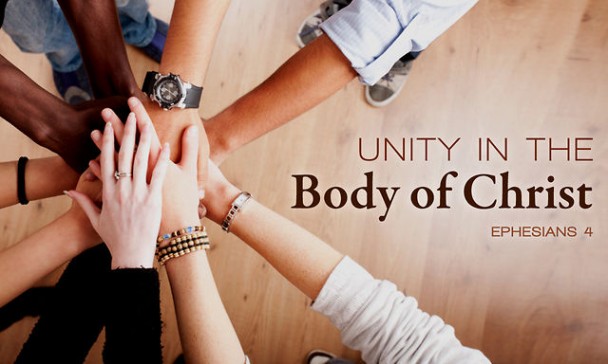
So this is the second step to achieving unity in the church. Remember, we are in the section of Ephesians where Paul tell us how to WALK as followers of Jesus, and Paul is giving us the steps we must walk in.
The first step, as we saw in Ephesians 4:1-3, was to check your own attitudes. In those verses we saw seven attitudes to make sure you have when involved in any sort of disagreement. After we focus on our own attitudes, the next thing to do, the next step, as Paul shows us here, is to focus on the things we have in common. Many of us, myself included, when we are involved in a disagreement, want to immediately go to the other person and show them their faults. But Paul says, “No. The first thing to do is check your own attitudes. After that, focus on what the two of you have in common.”
Let me show you that this is what Paul was saying. In Ephesians 2, Paul called for the Christians in Ephesus to live at peace with each other. And remember, it was a diverse church made up of both Jewish and Gentile Christians. They struggled with being unified because they were so different. They had different standards, different ways of raising children, different diets, different styles of worship, different beliefs, different social patterns. Sometimes, it seemed, they were completely different from one another. In Ephesians 2, Paul called them to be a peace with each other. Now he tells them how. Here is what he is telling them: “Rather than focus on the differences that are between you, focus on what you have in common. You might have disagreement about what kind of meat to eat. You might have disagreements about what kind of people to associate with. But look at what you have in common. Focus on those, and this will help you live in unity and love with one another.”
Today in our day, he would have said, “You might have disagreements about what kind of music should be played or sung in church. You might have disagreements about how best to run the church. You might have disagreements about when meet, and how long to meet, and what to do when you meet. You might have disagreements about what to wear, and what people can or cannot drink, and what people can or cannot eat and what sort of activities you can or cannot do. We might have disagreements of theology and doctrine. But don’t focus on those things. They will always divide you. Focus instead on what you have in common.
One of the best methods of keeping the peace, of keeping unified, is to stop focusing on how different you are, and to focus instead on the similarities. That’s what Paul does here. “You’re not different,” he says, “look what you have in common!” He lists seven elements of unity here. These are the things that really matter. This are the things that will unite us when there are so many things that can divide us.
Back in the frontier days towns would spring up overnight. Some of them would shrink in size as people moved further west. In one of these towns, two churches had been founded. A Baptist church and a Christian church. As both congregations dwindled due to the people moving away from the shrinking town, the pastors of the two churches decided to join forces and become one church. So they called the remaining members together for a meeting to decide what their new church would be called. The Baptists wanted to the church to be called Central Baptist Church and the people from the Christian church wanted to be called Central Christian Church. Finally, one old lady who had sat through many tired hours of disagreement and bickering, stood up in the back and said, “My Daddy was Baptist. My Momma was Baptist. I grew up Baptist. There ain’t no way I’m gonna be called a Christian!”
That’s what happens when we let silly things like the name of a church get in the way of what is important and what really matters. Paul lists here what really matters. As long as we agree on these things, we can agree to disagree on all the others. We can be as diverse as we want. We can have Lutherans and Methodists and Baptists and Pentecostals. We can even get together and have friendly arguments about some of the things that we disagree on. That’s fine. As long as we agree on the essentials as listed here, we all one body; we’re all one family. But if a certain organization claims to be a church and they deny any of these, that is when you know that they are not part of the family. That is when you stop associating with them and start witnessing to them.
While Paul is talking primarily about developing unity within the church, these same principles can be applied to all of our relationships. If you desire to have unity with your spouse, or your kids, or your boss, or a coworker, or a neighbor, the first thing to do, from Ephesians 4:1-3, is to check your own attitude. It is just as Jesus taught his disciples take the log out of your own eye first. But if you have done that, are you then able to go and show your neighbor his or her fault? If, in checking your attitudes, you have seen where you went wrong, and how you caused some of the disunity, are you then in the clear to go and show your spouse, or your coworker, or your fellow Christian his or her faults where they went wrong?
Paul answered that for us today in Ephesians 4:4-6. If you have taken the first step toward unity in checking your own attitude, then the next step is to focus on the things you have in common. Don’t focus on your differences. Focus on what makes you the same. If you focus only on your differences, there will never be peace.
Let’s not focus on what divides us. Let’s focus on the unity we have in Christ.
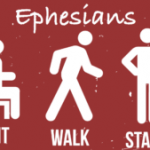




 Baptism is not a translation of the Greek word, but a transliteration.
Baptism is not a translation of the Greek word, but a transliteration.


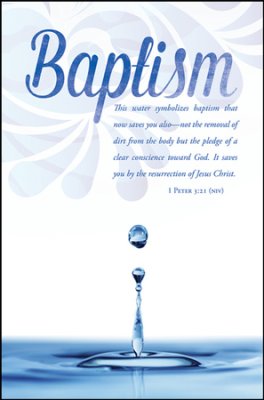 The solution to understanding 1 Peter 3:21 is to properly define the words “baptism” and “saves.” I define both of these terms in my online course, “
The solution to understanding 1 Peter 3:21 is to properly define the words “baptism” and “saves.” I define both of these terms in my online course, “ There was even a time when certain Christians were drowning other Christians over the question of baptism. During the Reformation, one group of Christians got so upset that others were doing baptism wrong, that they decided to baptize those other people to death by drowning them.
There was even a time when certain Christians were drowning other Christians over the question of baptism. During the Reformation, one group of Christians got so upset that others were doing baptism wrong, that they decided to baptize those other people to death by drowning them.